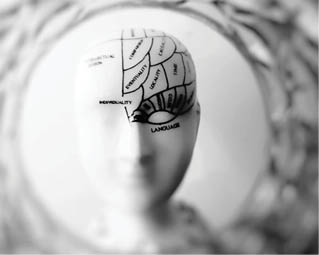Early signs of anxiety disorder
It’s common to experience occasional anxiety, especially if your life is demanding. But uncontrollable, excessive concern and anxiety that interfere with daily activities could be a symptom of generalised anxiety disorder. Both children and adults can experience generalised anxiety disorder. Although panic disorder, obsessive-compulsive disorder, and other forms of anxiety have some symptoms with generalised […]

Fear
It’s common to experience occasional anxiety, especially if your life is demanding. But uncontrollable, excessive concern and anxiety that interfere with daily activities could be a symptom of generalised anxiety disorder.
Both children and adults can experience generalised anxiety disorder. Although panic disorder, obsessive-compulsive disorder, and other forms of anxiety have some symptoms with generalised anxiety disorder, they are all distinct medical diseases.
It can be difficult to manage generalised anxiety disorder over the long run. It frequently co-occurs with other mood or anxiety disorders. With psychotherapy or medications, generalised anxiety disorder often gets better. Altering one’s lifestyle, developing coping mechanisms, and adopting relaxation techniques can all be beneficial.
Symptoms of generalised anxiety disorder might vary. They may consist of:
- persistent fear or worry over a variety of things that is out of proportion to how the events have affected those things
- overanalyzing strategies and options to account for all worst-case scenarios
- interpreting circumstances and occurrences as dangerous even when they are not
- coping challenges with uncertainty
- Fear of making the wrong choice and indecision
6, an inability to ignore or let go of a concern
- Lack of ability to unwind, restlessness, and feeling tense or on edge
- the inability to focus the sensation that your mind “goes blank”
Physical symptoms and indicators could be:
- fatigue
- difficulty sleeping
- either tension or pain in the muscles
- feeling shaky and jittery
- being uneasy or easily startled
- Sweating
- diarrhoea, irritable bowel syndrome, or nausea
8 Irritability
Children and teenagers may worry about the same things that adults worry about, but they may worry excessively about:
- performance in academic or athletic settings
- safety of the family
- being punctual (punctuality)
- earthquakes, nuclear conflict, or other disastrous occurrences
An anxious child or adolescent may:
- Feel overly concerned with fitting in
- Aim for perfection
- Perform chores again since the previous time wasn’t flawless
- Spend too much time on schoolwork
- lack of assurance
- Strive for acceptance
- need to be assured repeatedly about their performance
- possess persistent stomachaches or another bodily ailment
- Avoid social interactions or going to school.
Source: www.mayoclinic.org
